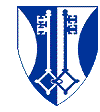| |
For
students about to enter the IB Diploma Programme in September 2003
or January 2004
 The
IB Diploma Programme is very demanding and assumes a certain level
of proficiency in study skills as well as mathematics, science,
literature, language, and humanities. An introduction to the type
of work in the IB can give you a head start in your courses. This
course gives you an insight into your subject areas, improves your
confidence in written and spoken English, and develops essential
skills in a structured and supportive environment. The
IB Diploma Programme is very demanding and assumes a certain level
of proficiency in study skills as well as mathematics, science,
literature, language, and humanities. An introduction to the type
of work in the IB can give you a head start in your courses. This
course gives you an insight into your subject areas, improves your
confidence in written and spoken English, and develops essential
skills in a structured and supportive environment.
The IB Introduction
Course aims to help you to work more effectively, responding to
the demands of the IB Diploma Programme. You have the opportunity
to explore what the IB Diploma Programme will be looking for, and
how you can do your best - through activity-based learning, guided
by the teachers, other students, and using the wonderful resources
of the Academic Resources Centre (the ARC).
The course is
divided into four sections: Academic English, the Humanities, Science
and Mathematics. On the IB Programme you have to take a Mathematics,
a Science, a Humanities and an English course, so the Introduction
Course prepares you for all these areas. All students will take
all sessions, and must attend for the full three weeks of the course.
Course
list:
- 18 hours
each week
- 51 hours
over the three weeks of the course
(no teaching on the last Friday
Subjects
Academic
English (EAP for non-native speakers; essay writing, etc., for native
speakers)
Summer Courses
2003 - IB Introduction Courses - 18 hours over 5 days
Main course classes: Week One [28 Jul - 1 Aug] - Week Two [4-8 Aug]
- Week Three [11-14]
- Reading academic
texts in English and summarising relevant information.
- Critical
extraction and evaluation of evidence from historical and contemporary
sources.
- Application
of concepts studied in various disciplines to matters of public
interest and concern.
Please note
that this is an illustration of the sort of areas covered by one
particular class. Each course is slightly different, as the teachers
adapt what they cover to ensure that they address the particular
needs of each group of students.
Back
to course list
Individuals
and Society
Summer Courses
2003 - IB Introduction Courses - 18 hours over 5 days
Main course classes: Week One [28 Jul - 1 Aug] - Week Two [4-8 Aug]
- Week Three [11-14]
After an introduction
outlining the educational principles of the I.B., the class started
to develop the skills necessary to achieve a good diploma as a whole,
and to succeed in the subject group "Individuals and Societies".
We looked at the importance of constructing a relevant answer to
a question, using the evidence available to write an analytical
answer, rather than one based on narrative. Whilst discrediting
the notion that there is no "right" answer, we identified
the importance of constructing a case on the foundation of sound
evidence. We began to develop the students' skills of both written
and oral communication in English, through the medium of current
international issues, for example, the USA's policy towards Iraq.
Three pieces of written work were completed and each student made
an oral presentation to the rest of the class.
Topics
included:
- Oxford Life,
The Middle East, South Africa, Northern Ireland, Education, British
Life, The European Union, International Communication, Customs
and Culture
Skills:
- Oral Presentations,Research,
Writing Projects
Please note
that this is an illustration of the sort of areas covered by one
particular class. Each course is slightly different, as the teachers
adapt what they cover to ensure that they address the particular
needs of each group of students.
Back
to course list
Science
Summer Courses
2003 - IB Introduction Courses - 18 hours over 5 days
Main course classes: Week One [28 Jul - 1 Aug] - Week Two [4-8 Aug]
- Week Three [11-14]
Practical:
(Common to all IB Science subjects, this accounts for 24% of the
final grade, experiments done included)
- Boyle's Law
- Rates of
Reaction
- Density
- Assessing
the accuracy of apparatus
Written:
- Laboratory
reports
- Data analysis
problems
Mathematical:
- Graph drawing
- Calculations
from experimental data
- Assessment
of errors
Reading:
- Use of the
library and internet
- Various read-ups
from scientific magazines
- Research
of a science topic of the student's choice
Please note
that this is an illustration of the sort of areas covered by one
particular class. Each course is slightly different, as the teachers
adapt what they cover to ensure that they address the particular
needs of each group of students.
Back
to course list
Mathematics
Summer Courses
2003 - IB Introduction Courses - 18 hours over 5 days
Main course classes: Week One [28 Jul - 1 Aug] - Week Two [4-8 Aug]
- Week Three [11-14]
- Algebra
- Simplifying
and factorising expressions,
- Algebraic
fractions,
- Transforming
formulae,
- Solving
quadratic equations,
- Quadratic
graphs.
- Trigonometry
- Sine
and Cosine rules,
- Solving
3D trig problems,
- Trig
graphs
- Functions
- Range and
Domain,
- Inverse
and Composite Functions,
- Transformations
and Graph sketching.
- Geometry
- Equation
of a straight line,
- Midpoint
and length of a line in 2D and 3D,
- Gradient
Please note
that this is an illustration of the sort of areas covered by one
particular class. Each course is slightly different, as the teachers
adapt what they cover to ensure that they address the particular
needs of each group of students.
Back
to course list
IB
Review || IB Enrichment
Courses (Afternoon Classes)
Top
of page
|



 The
IB Diploma Programme is very demanding and assumes a certain level
of proficiency in study skills as well as mathematics, science,
literature, language, and humanities. An introduction to the type
of work in the IB can give you a head start in your courses. This
course gives you an insight into your subject areas, improves your
confidence in written and spoken English, and develops essential
skills in a structured and supportive environment.
The
IB Diploma Programme is very demanding and assumes a certain level
of proficiency in study skills as well as mathematics, science,
literature, language, and humanities. An introduction to the type
of work in the IB can give you a head start in your courses. This
course gives you an insight into your subject areas, improves your
confidence in written and spoken English, and develops essential
skills in a structured and supportive environment.